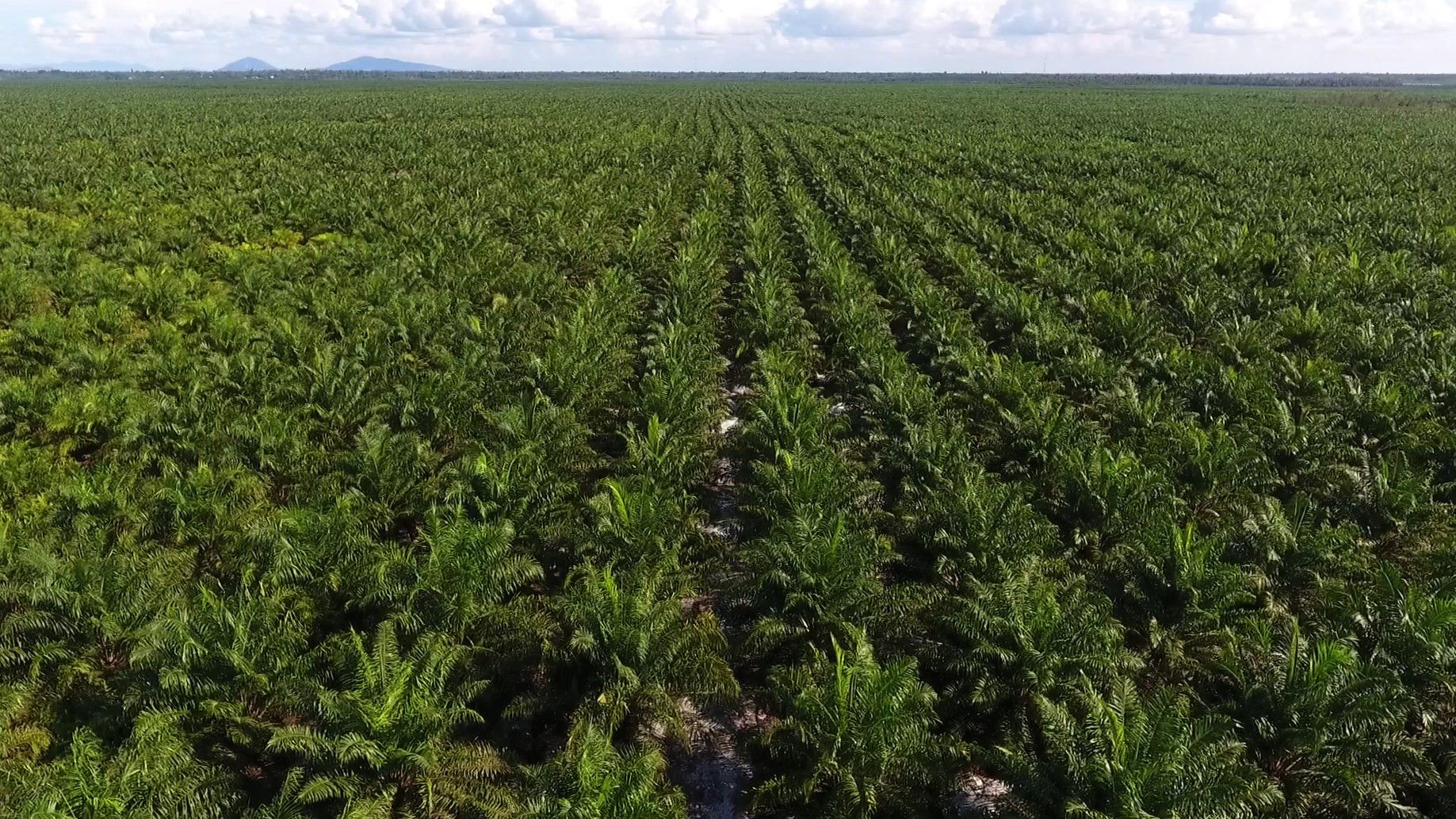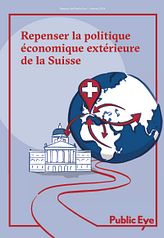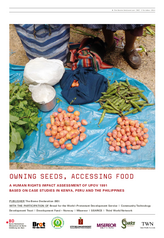Trade policy
Background trade policy
Trade policy and human rights
More infos
-
Human rights impact assessments
“Global trade must further the rights of people. Therefore human rights must be factored into all decisions relating to trade policy.” – Public Eye voiced this demand more than ten years ago in its document ‘Human Rights Economy’.
The demand is more relevant than ever because bilateral free trade agreements (FTAs) contain provisions that go further than those of multilateral agreements, increasing the chances of conflicts arising between trade and human rights. This is particularly the case for FTAs with countries that are most vulnerable to violations of their economic, social and cultural human rights.
For example, if the import tariffs levied by countries of the South are significantly reduced, it can remove important sources of income that they urgently need to support the poorest and most vulnerable sections of society. This negatively impacts these people’s right to social security, proper nutrition or education.
Furthermore, FTAs often require stronger intellectual property rights. This demand can negatively affect the right to health, which is guaranteed under international law (see our German documentation ‘Human rights are not up for negotiation’).
A call for prior human rights impact assessments
For years, UN human rights bodies have pointed to the danger of human rights violations associated with FTAs. The UN has repeatedly called on Switzerland to assess the potential impact of FTAs on the human rights situation in partner countries.
Human rights impact assessments make it possible to identify the potential ramifications of FTAs on the human rights situation in partner countries early on. Their findings should form an important basis for negotiations and serve as a point of reference for the design of trade agreements. Moreover, they help to shed light on typically opaque negotiation processes, ensure that conflicts of interest are addressed in a more democratic manner and subject decisions taken to public scrutiny.
Public Eye has for years been calling on SECO (the State Secretariat for Economic Affairs), the Swiss government body responsible for trade policy, to carry out human rights impact assessments – importantly, before negotiations on a new FTA are concluded.
Since SECO has for years stubbornly refused to carry out prior human rights impact assessments for FTAs, the National Council’s Business Audit Committee has taken action and urged the Federal Council to carry out such sustainability assessments before concluding important FTAs. With success: in its most recent foreign trade strategy, the Federal Council promised to conduct such assessments “in advance of important economic agreements”. Public Eye will continue to monitor these developments critically and ensure in particular that the impact assessments also cover the possible human rights impacts.
-
Sustainability chapter in the free trade agreement
 ©
Brot für alle (BFA)
©
Brot für alle (BFA)
Since 2010, the free trade agreements (FTAs) entered into by Switzerland and EFTA – as part of which Switzerland negotiates most FTAs – have by default included a section on trade and sustainable development with provisions on environmental protection and labour rights. Between 2017 and 2020, this section was revised and supplemented with new important provisions, for example on climate change, biodiversity and forest management.
While these supplements are laudable, they do not change the sustainability section's fundamental weakness: it is little more than a declaration of intent, because it does not provide for sanctions as a strong enforcement mechanism. In fact, the sustainability provisions are explicitly excluded from the arbitration provided for in the agreement. This means that they are not legally binding and cannot be enforced. For violations, Switzerland relies on no more than consultations and a panel of experts.
In contrast, the EU has recently switched to a sanctions-based approach to certain sustainability provisions such as climate change and labour standards in its trade agreements. Apparently, the EU, that was previously also purely 'cooperative', has come to the realisation that these provisions can only really be enforced when sanctions are an option.
-
Intellectual property rights
Intellectual property rights such as patents and plant variety or brand protections are important instruments used to compensate creators for their innovations, yet on the other hand there is a public interest in using these innovations. The challenge in shaping intellectual property rights is to strike a balance between these two interests.
The focus of current trade policy on strengthening intellectual property rights risks upsetting this balance. In free trade agreements with developing and emerging countries, it has become commonplace for industrial countries, which have by far the highest number of patents, to demand more comprehensive and stronger intellectual property rights.
Switzerland tolerates human rights violations
Switzerland stands out in this regard. It regularly calls for stronger protection of intellectual property rights within the framework of free trade agreements with poorer countries. However, there is a risk of this contributing to human rights violations, especially in two areas of particular interest to Switzerland: patents on drugs and plant variety protection on seeds.
Comprehensive and excessively long-lasting patents make drugs more expensive, making life-saving drugs unaffordable, especially for poorer segments of the population. Yet access to such drugs is a documented human right – insufficient access violates the right to health.
A higher level of protection on seeds can make necessary planting material unaffordable for small-scale farmers. This is also a matter of human rights: in a human rights impact assessment, Public Eye and its partner organisations outlined how stronger plant variety rights hamper small-scale farmers’ access to seeds, undermining their right to food.
Therefore, together with many other organisations, Public Eye condemns the demand for stronger intellectual property rights regularly made by Switzerland in free trade negotiations – because human rights are not negotiable.



